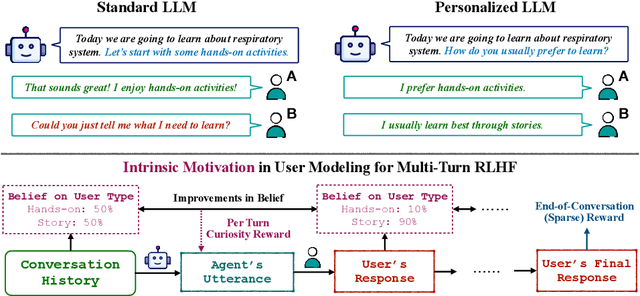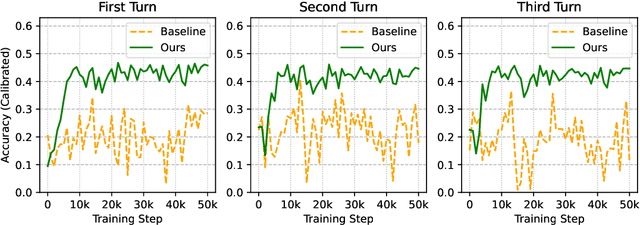Enhancing Personalized Multi-Turn Dialogue with Curiosity Reward
Paper and Code
Apr 04, 2025



Effective conversational agents must be able to personalize their behavior to suit a user's preferences, personality, and attributes, whether they are assisting with writing tasks or operating in domains like education or healthcare. Current training methods like Reinforcement Learning from Human Feedback (RLHF) prioritize helpfulness and safety but fall short in fostering truly empathetic, adaptive, and personalized interactions. Traditional approaches to personalization often rely on extensive user history, limiting their effectiveness for new or context-limited users. To overcome these limitations, we propose to incorporate an intrinsic motivation to improve the conversational agents's model of the user as an additional reward alongside multi-turn RLHF. This reward mechanism encourages the agent to actively elicit user traits by optimizing conversations to increase the accuracy of its user model. Consequently, the policy agent can deliver more personalized interactions through obtaining more information about the user. We applied our method both education and fitness settings, where LLMs teach concepts or recommend personalized strategies based on users' hidden learning style or lifestyle attributes. Using LLM-simulated users, our approach outperformed a multi-turn RLHF baseline in revealing information about the users' preferences, and adapting to them.
 Add to Chrome
Add to Chrome Add to Firefox
Add to Firefox Add to Edge
Add to Edge